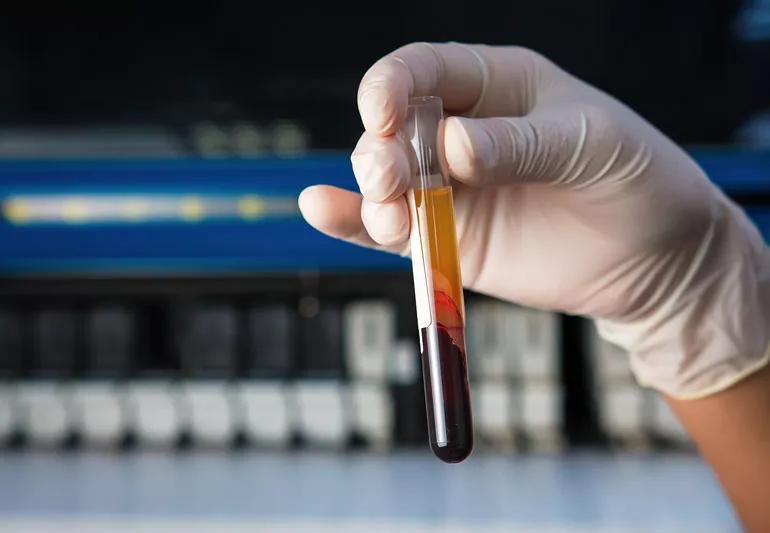The short answer from a cardiologist

Image content: This image is available to view online.
View image online (https://assets.clevelandclinic.org/transform/9751c30f-a740-4180-bf0d-483e16c6502c/bloodTestLipoprotein-475986550-770x553_jpg)
Technician holding test tube for testing blood
A: It’s well known that low-density lipoprotein (LDL), or “bad cholesterol,” is a major cause of heart disease. But there’s a lesser-known kind of cholesterol that can play a role in someone’s heart risk, too.
Studies show that having a high level of a protein called Lipoprotein(a), or Lp(a), in your blood is also a risk factor for heart disease and, to a lesser degree, stroke.
Advertisement
Cleveland Clinic is a non-profit academic medical center. Advertising on our site helps support our mission. We do not endorse non-Cleveland Clinic products or services. Policy
It’s estimated that about one in five people in the U.S. has an Lp(a) level that puts them at risk. But the tricky thing is, Lp(a) level isn’t regularly tested in most people. And, even people with a healthy level of LDL cholesterol could have a high Lp(a) level. So many people are walking around with abnormally high Lp(a) but don’t know it.
We suspect that Lp(a) could be a factor in the rise in heart attacks in younger, seemingly healthy adults who do not have high LDL cholesterol.
The other tricky thing is that your Lp(a) level is in large part genetically wired, so things like diet and exercise won’t really change it. There are currently no FDA-approved drugs to lower it, either — though some potential gene-silencing treatments are being developed and tested.
For now, Lp(a) may be used as part of an overall assessment of a person’s risk for heart disease. But strategies for lowering that risk focus on addressing other risk factors, such as high LDL cholesterol, BMI and blood pressure.
— Cardiologist Leslie Cho, MD
Advertisement

Sign up for our Health Essentials emails for expert guidance on nutrition, fitness, sleep, skin care and more.
Learn more about our editorial process.
Advertisement
Adults at low risk for heart disease may not need them
Should you measure BMI, waist circumference or something else?
Study finds heart-healthy habits can’t be measured by the scale alone
Who should consider surgery for long-term weight loss
LDL cholesterol and lipoprotein (a) cholesterol are more likely to stick to your arteries and lead to dangerous heart events
Lifestyle changes can help you get your cholesterol under control
The yellow-colored spice does more than add flavor to your meals
Your food choices can have a profound impact on how long you’ll live
Type 2 diabetes isn’t inevitable with these dietary changes
Applying a hot or cold compress can help with pain
Pump up your iron intake with foods like tuna, tofu and turkey